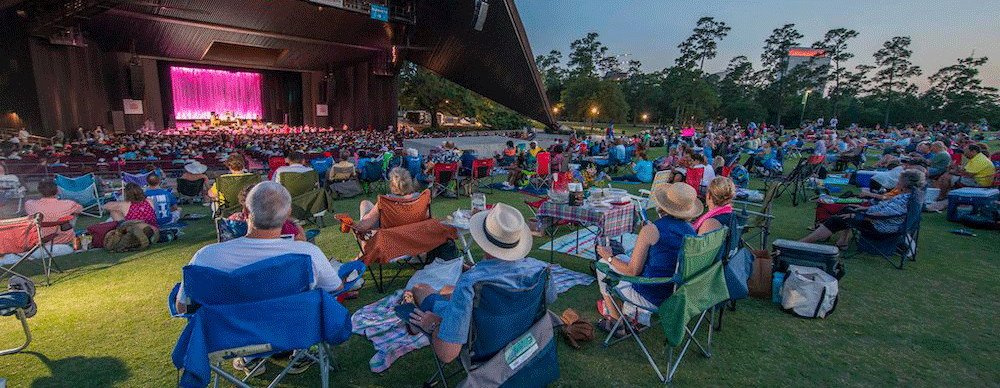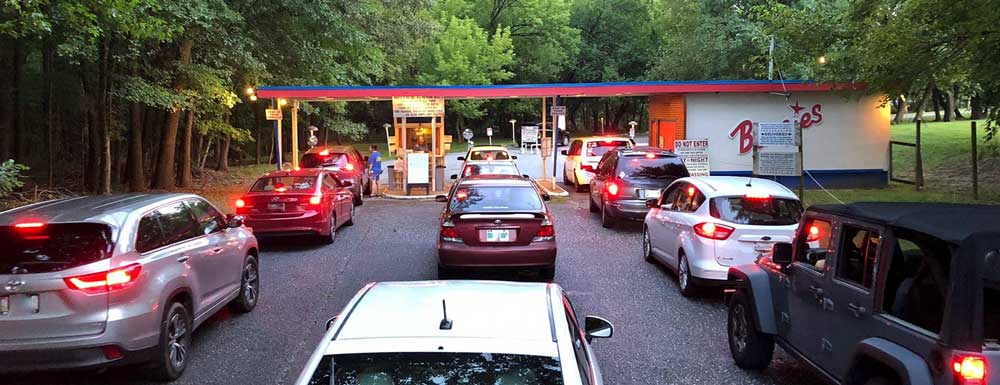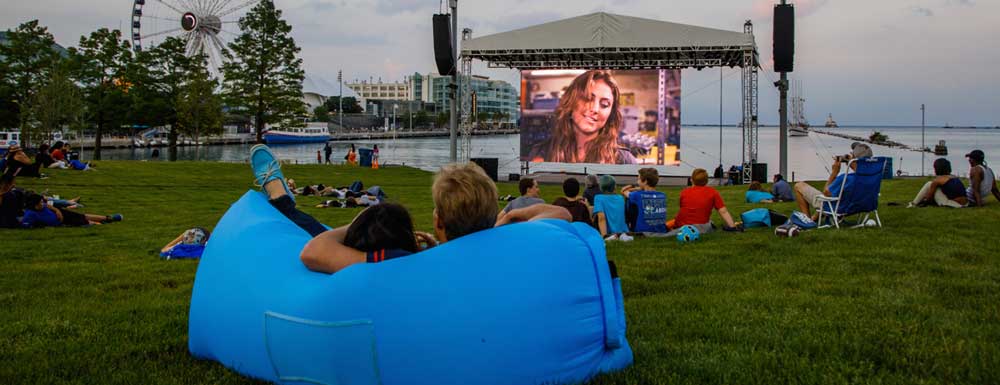Hosting an Outdoor Theatre Event: 10 Tips for Beginners
Fall is in the air! With it comes cooler temperatures and changing leaf colors. For many regions, this is the perfect combination for an outdoor event.
While nature can provide the perfect setting for a performing arts production, outdoor events require more forethought and planning. The key to ensuring your event goes off without a hitch is to plan for as many variables as possible. Consider these 10 tips for creating your first outdoor theatre event.

1. Find a venue that works for your production
Selecting the right venue is one of the most important decisions you will make. Everything from the equipment you’ll need to supply to the food vendors you can use, the outdoor space you select affects every detail of the event.
Sounds intimidating, right?
Before you look, know your budget, approximate event size, and space requirements. Once you have defined these, you can start your search.
-
Select a centralized location for your target audience.
-
Consider traffic issues
-
What are the parking options?
-
What is the capacity?
-
If the venue offers food and beverages, do they have a minimum requirement? If so, check the food and beverage records from past events to ensure a fair minimum.
-
What resources/equipment does the venue have?
-
How are the acoustics?
-
Does the layout/floor plan work for your event?
-
Is the space ADA compliant?
If you’re having trouble getting started, online tools such as Unique Venues and Peerspace can help you narrow down your venue search.
2. Test equipment ahead of time
What could be worse than having guests seated, only to learn that your PA system doesn’t work last minute? All necessary equipment should be in place and tested several times on the days leading up to and the day of the event.
Before the event, your equipment check list should include:
- Audio/mics
- Video stream if broadcasting live
- PA system
- Lighting
- Power source and back-generators
- Wireless connection
- Cords and wiring
- Headsets/communication tools
Onsite, weatherproof storage should be also be available to ensure the safety of your equipment.
3. Maintain an accurate guest count
Overcrowding leads to unsafe and uncomfortable conditions. As the event organizer, there are steps you can take to ensure the event does not go over capacity.
An event ticketing service like Purplepass can help you manage your ticket sales for the event capacity as well as reserved seating options if necessary.

4. Control entrances and exits
Historically, admission to outdoor events is more difficult to control than indoor events. To ensure a safe and smooth process, deliberate every scenario.
-
Gate all entrances and exits.
-
All entry and exit points should be clearly marked.
-
If possible, have over one admission gate and exit.
-
Hire enough security and attendants to manage parking, admissions, and guest seating.
- Having a park plan!
5. Promote the fact that it’s an outdoor event!
From social media to traditional newspaper ads, there are a variety of marketing tools you can use to promote your event. When developing your advertising strategy, consider your target audience and what will resonate most with them.
For promotion purposes, be sure to highlight the fact that this is an outdoor performance. Outdoor events provide natural views and fresh air, and now offer a covid-friendly setting for your guests.
6. Prepare for inclement weather (Plan B)
While there is a multitude of advantages to hosting an event outside, you are at the mercy of the weather. Therefore, it is critical that you have a backup plan in place.
Before signing, review the contract details regarding inclement weather. What are your cost liabilities if the weather forces you to cancel or postpone the event? This includes venue rental, equipment rental, security, and vendors.
On the days leading up to the event, carefully monitor all weather reports. Your backup plan should detail how and when you will decide to move to Plan B and how you will notify attendees of any changes.
Pro-tip: It is also important to prepare for any emergency that may arise. Consider all plausible scenarios and create a contingency plan for each. Make sure every staff member knows the emergency plan. This will help ensure they remain calm and can protect guests against potential injuries.

7. Keep attendees comfortable
The comfort and safety of attendees are integral to your event’s success. If the venue you select has permanent seats installed, guests should can choose their seat numbers.
Many outdoor venues are open, allowing attendees to decide where they want to sit. You can keep them comfortable and boost profits by renting or selling chairs and/or blankets as an add-on.
8. Partner with local food and drink vendors
You can further enhance the experience by providing access to food and drinks. If the venue does not have its own vending, partner with local food trucks to attend the event.
Pro-tip: Don’t forget to check with your local government to identify all necessary permits. Potential permit requirements include: Food Truck, Special Use, Outdoor Amplified Sound, and Liquor.
Learn more about event permits for outdoor theatre events here.
9. Hire a parking crew
Crowd control ensures the safety of both guests and staff. Your parking crew is the first line of defense against potential overcrowding and injuries. Make sure every member of your team understands their role and is properly trained.
Pro-tip: Prepare for the unexpected by hiring a trained medical team. Having a team on-site minimizes the potential for serious injury.
10. Consider live-streaming
The pandemic has caused a shift in mindset, causing many to rethink the events they attend. As a result, businesses have had to come up with innovative ways to reach their target audiences.
While the concept is not new, an increasing number of organizations are now hosting hybrid events. Live streaming your outdoor event is an excellent way to reach a broader audience. Folks from all over the world can attend your event, resulting in increased profits.
Hosting an outdoor event requires organization and attention to detail. Use these tips as a guide to ensure a safe and seamless occasion. Good luck!!






